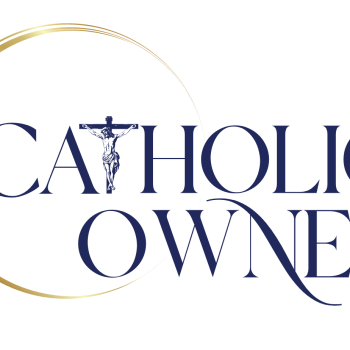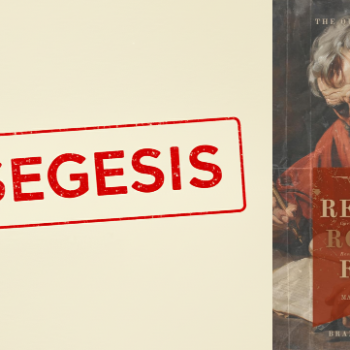 In its first week, the Faith@Work Consultation discussed the challenges facing the Christian in the workplace, and developed a list of five most pressing issues (click on the number to jump to the specific discussion thread): (#1) Balancing family and professional commitments, (#2) What it means to witness Christ in the workplace, (#3) The role of ambition and self-promotion for the Christian professional, (#4) How a Christian should fire an employee, and (#5) how a Christian can experience Christ's presence and calling at work.
In its first week, the Faith@Work Consultation discussed the challenges facing the Christian in the workplace, and developed a list of five most pressing issues (click on the number to jump to the specific discussion thread): (#1) Balancing family and professional commitments, (#2) What it means to witness Christ in the workplace, (#3) The role of ambition and self-promotion for the Christian professional, (#4) How a Christian should fire an employee, and (#5) how a Christian can experience Christ's presence and calling at work.
In the weeks that followed we gathered our own stories, perspectives, and resources on these issues, and then sought the input of experts. Now, I will summarize our findings in two parts. The First Part examines the first two issues; the second part will appear on Friday.
When it comes to balancing family and professional commitments (#1), two of the articles we featured emphasized the ancient practice of honoring the Sabbath - and honoring what the Sabbath honors, the call of God to rest and re-create. As Mark D. Roberts (Remembering the Sabbath) writes, "Though Christians rightly exercise freedom in Christ with respect to the details of Sabbath observance, such as the day of the week, we need to take seriously the call to weekly rest. Not only do we honor God in our Sabbath-keeping, but also we need it. God created us for a rhythm of work and rest. Jesus, the Lord of the Sabbath, invites us to receive the gift of Sabbath even as he sets us free from legalistic approaches to it." Galen Dalrymple (Busyness as Curse) speaks of the tendency of modern individuals, even Christians, to take pride in being busy. If we are busy, we think, we must be important, and strong. Yet it is not a weakness, but a part of God's intention, that we should need and take rest. "What is sacrificed in all our busyness?" he asks. "Life. Families. Fellowship. Intimacy. The heart. The spirit. The moments that God would like to fill that we have given to something far less worthy. The little miracles and beauties that He puts in our pathway each and every day, hoping we'll notice them, delight in them, and give Him thanks and glory for each and every one of those little things."
David Rupert (Wipe Your Feet) speaks essentially of negative and positive ways of bringing work home. Negatively, one can bring home the anxieties and frustrations and let them detract from one's family life. Rupert suggests particular practices in order to "wipe your feet" and leave the clinging soil of work behind; and yet he suggests that one should discuss one's struggles and triumphs as a family. In his interview (Part 1), Marcus Goodyear, the editor of TheHighCalling.org (which generously shared content for the Consultation), likewise points to the tension between thinking of work/family issues as a matter of balance and thinking of them as a possibility of integration. In the former way of thinking, we should find the proper allotment of time for work and family, or at least have seasons of work and rest. Yet it is also possible to invite God and family into the work experience. This should not detract from quality time with family, but some professionals may find creative ways of integrating their passions for God and family with their professional pursuits. As one reader noted in the discussion, this can be especially challenging for those who work from home, where family always beckons. Yet as another reader responded, "The key is to throw ourselves onto the horns of the dilemma, humble ourselves in recognition of our imperfections, love our children and spouses with fidelity and tenderness, acknowledge our failures, and pray for the grace of God to mend the broken pieces in our wake."





